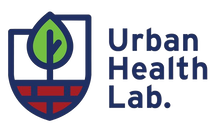IGNITE: A Randomized Controlled Trial of Concentrated Investment in Black Neighborhoods to Address Structural Racism as a Fundamental Cause of Poor Health
Black individuals in the United States fare worse than White individuals across almost every social, economic, and health indicator. The fundamental cause of these striking and pervasive disparities is structural racism – the confluence of deep historical, institutional, cultural, and ideological forces that unequally distribute resources and risks across racialized groups. Most notably, longstanding, systematic disinvestment has resulted in highly segregated Black neighborhoods with dilapidated environmental conditions and severe economic insecurity within Black households, leading to a “feedback loop of concentrated racial disadvantage,” all of which have been strongly tied to poor health.
Most interventions seeking to address racial health disparities focus on individual-level behaviors and outcomes, or individual channels by which structural racism harms health. However, by failing to address upstream social determinants, these interventions have had limited population level impact. In partnership with the Opportunity for Health Lab, this project tests a radically different approach in which we intervene on multiple upstream drivers of health in unison to more substantially and durably improve health among Black Americans.
Specifically, we will deliver a suite of environmental and economic focused interventions:
Environmental: Vacant lot greening, tree planting, trash cleanup
Economic: Connection to public benefits, tax-preparation, financial counseling, emergency cash grants
PI: Eugenia C. South, MD, MS and Atheen Venkataramani, MD, PhD
Partners: Pennsylvania Horticultural Society, Clarifi, Campaign for Working Families
Funder: National Institutes of Health

